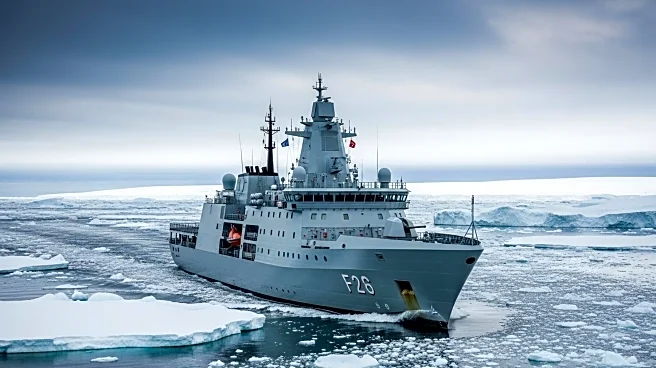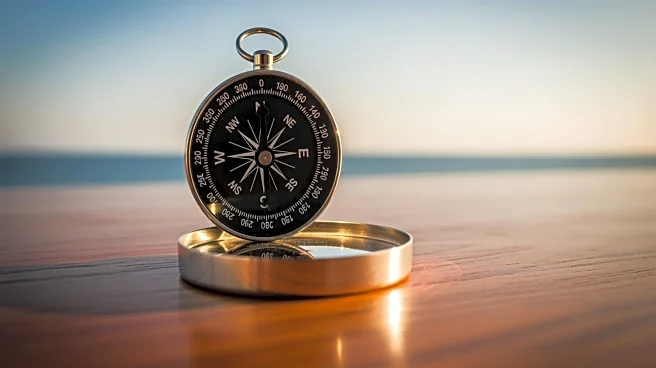What's Happening?
The Government of Denmark, in collaboration with the Government of Greenland and the Government of the Faroe Islands, has announced the Second Agreement on the Arctic and North Atlantic as part of the 2024-2033 Defence Agreement. This initiative includes significant defense acquisitions aimed at enhancing the operational effectiveness of the Danish Armed Forces in the Arctic region. Key components of the agreement involve the procurement of two additional Arctic vessels, a maritime patrol aircraft capacity, a new headquarters for Joint Arctic Command, additional drones, and a North Atlantic undersea cable. The total planned acquisitions under this agreement amount to DKK 27.4 billion ($4.3 billion). These investments are intended to bolster Denmark's surveillance and sovereignty assertion capabilities in the Arctic, building on previous agreements and political decisions made earlier in 2025.
Why It's Important?
The expansion of Denmark's naval capacity in the Arctic is significant due to the region's growing strategic importance. As global interest in the Arctic increases, driven by potential resource exploration and geopolitical dynamics, Denmark's enhanced military presence aims to secure its interests and assert sovereignty. This move could impact international relations, particularly with countries like Russia and China, who have shown interest in the Arctic. The investment in defense capabilities also reflects Denmark's commitment to maintaining security and stability in the region, which is crucial for international shipping routes and environmental conservation efforts. The initiative may influence other Arctic nations to similarly bolster their military presence, potentially leading to increased regional militarization.
What's Next?
Denmark's defense expansion in the Arctic is likely to prompt reactions from other nations with interests in the region. Countries such as Russia and China may respond by increasing their own military activities or diplomatic engagements in the Arctic. Additionally, Denmark's investments could lead to further collaborations with NATO allies to ensure collective security in the region. The implementation of the Second Agreement will involve the construction and deployment of new military assets, which may take several years to fully realize. Monitoring the effectiveness of these new capabilities and their impact on regional security will be crucial for Denmark and its allies.
Beyond the Headlines
The strategic focus on the Arctic by Denmark highlights broader geopolitical shifts as nations vie for influence in the region. This development underscores the importance of international cooperation in addressing challenges such as climate change and sustainable resource management. The increased military presence may also raise ethical questions regarding the balance between security and environmental protection. Long-term, Denmark's actions could contribute to shaping the Arctic's future as a zone of peaceful cooperation or heightened competition.











